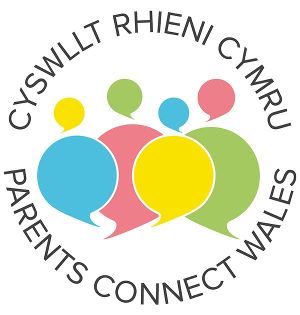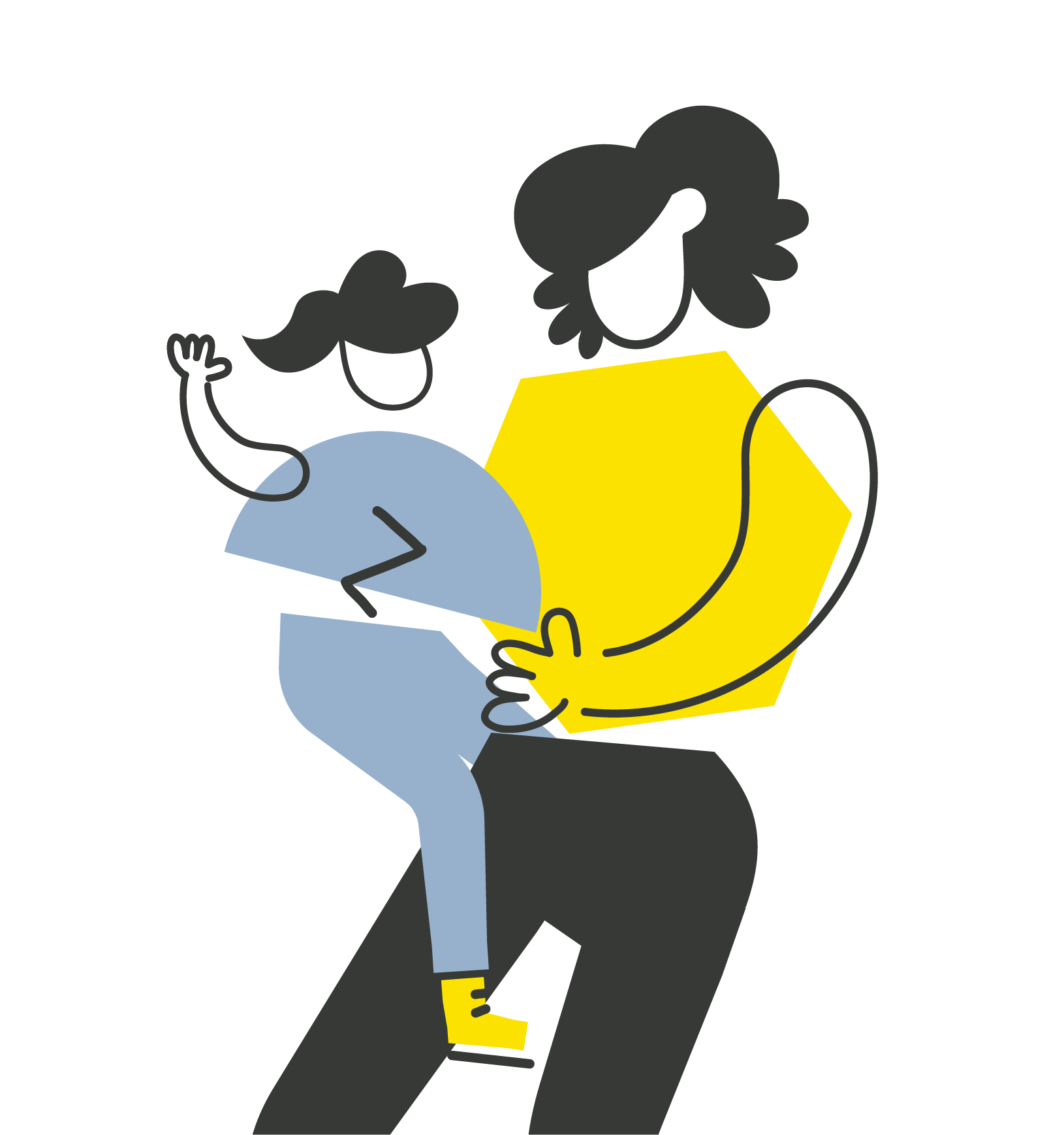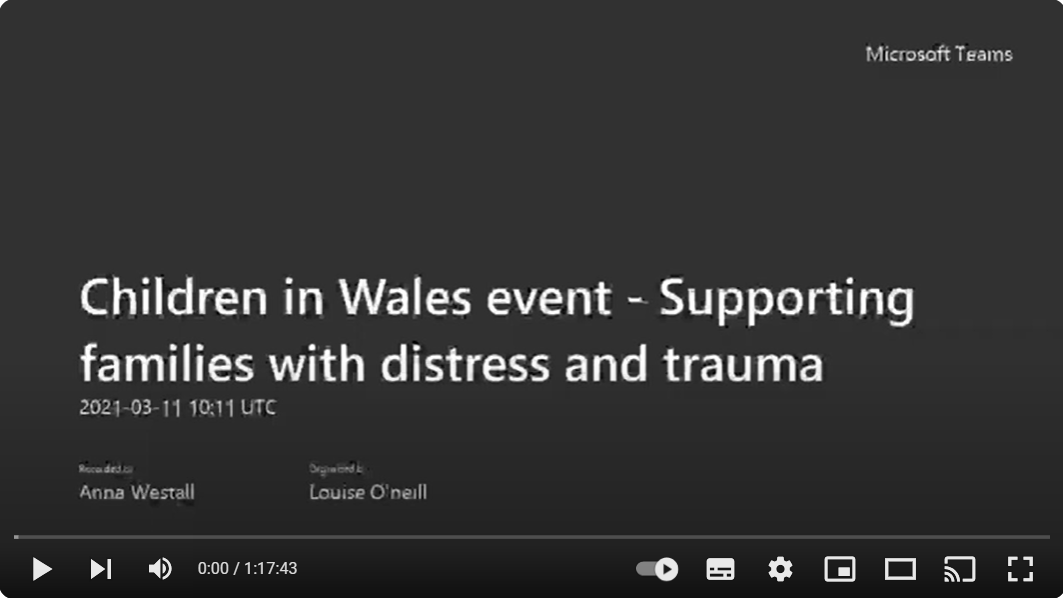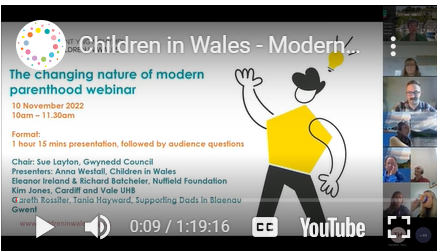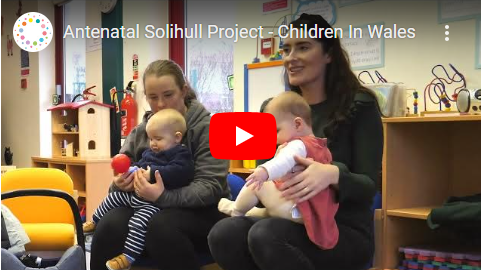Cymorth i Deuluoedd a Rhianta
Cysylltwch
Anna Westall, Uwch Swyddog Polisi
anna.westall@childreninwales.org.uk
Fatiha Ali, Swyddog Datblygu
Mae magu plant yn weithgaredd a wneir gan y rhai sy'n magu plant. Mae hyn yn cynnwys mamau a thadau, gofalwyr maeth a rhieni mabwysiadol, llys-rieni, a neiniau a theidiau. Mae awdurdodau lleol hefyd yn gweithredu fel rhieni corfforaethol ar gyfer plant a phobl ifanc yn eu gofal.
Mae Plant yng Nghymru wedi gweld cefnogi rhieni a theuluoedd fel rhan allweddol o’n gwaith ers blynyddoedd lawer. Mae cysylltiad agos rhwng plant ifanc ac uned deuluol, felly mae CCUHP yn cydnabod ac yn cefnogi rhieni a theuluoedd yn gryf a’u rôl a’u cyfrifoldebau hanfodol ar gyfer amddiffyn a gofalu am blant a’u helpu i gaffael gwerthoedd a safonau (Erthyglau 5 a 18).
Cytunir yn eang ei bod yn bwysig i deuluoedd gael eu cefnogi mewn ffyrdd sy’n briodol i’w hanghenion er mwyn adeiladu a chreu gwytnwch a hunanddibyniaeth. Trwy arfogi teuluoedd â’r sgiliau a’r gefnogaeth sydd eu hangen arnynt cyn gynted â phosibl ac adeiladu ar gryfderau rhieni gallwn eu helpu i greu amgylcheddau cefnogol a chyfoethog ar gyfer eu plant. Bydd hyn yn rhoi pob cyfle iddynt gyrraedd eu potensial yn unol â saith nod craidd Llywodraeth Cymru ar gyfer plant a phobl ifanc.
Mae’r saith nod yn crynhoi CCUHP ac yn sail i benderfyniadau ar flaenoriaethau ac amcanion yn genedlaethol.
- Cael dechrau teg mewn bywyd (Erthyglau 3, 29, 36)
- Cael ystod gynhwysfawr o gyfleoedd addysg a dysgu (Erthyglau 23, 28, 29, 32)
- Yn mwynhau'r iechyd gorau posibl ac yn rhydd rhag camdriniaeth, erledigaeth a chamfanteisio (Erthyglau 6, 18-20, 24, 26-29, 32-35, 37, 40)
- Cael mynediad i weithgareddau chwarae, hamdden, chwaraeon a diwylliannol (Erthyglau 15, 20, 29, 31)
- Yn cael gwrandawiad, yn cael eu trin â pharch, a bod eu hil a’u hunaniaeth ddiwylliannol yn cael eu cydnabod (Erthyglau 2, 7, 8, 12-17, 20)
- Cael cartref diogel a chymuned sy’n cefnogi lles corfforol ac emosiynol (Erthyglau 19, 20, 25, 27, 32-35, 37, 37, 40)
- Heb fod dan anfantais oherwydd tlodi (Erthyglau 6, 26, 27, 28)
Prosiectau Cysylltiedig â Chymorth i Deuluoedd a Rhianta
Cyswllt Rhieni Cymru
Cyswllt Rhieni Cymru - ‘Grymuso lleisiau rhieni a gofalwyr i hyrwyddo hawliau plant’.
Mae’r prosiect yn darparu ffordd glir o gael barn rhieni/gofalwyr ar feysydd polisi sy’n effeithio ar eu plant a’u pobl ifanc.
Rhwydwaith Arweinwyr Strategol Cenedlaethol Rhianta a Chymorth i Deuluoedd
Mae Plant yng Nghymru yn cefnogi gweithwyr proffesiynol ledled Cymru i gefnogi ymarferwyr i ddarparu gwasanaethau cymorth i deuluoedd/rhianta o ansawdd gwell
Grŵp Trawsbleidiol i Blant a Theuluoedd
Plant yng Nghymru sy’n darparu’r ysgrifenyddiaeth ar gyfer Grŵp Trawsbleidiol Senedd Cymru ar Blant a Phobl Ifanc.
Fforwm Gweithwyr Proffesiynol ‘Rhieni Cyswllt Cymru’
Ymunwch â'n Fforwm ar gyfer gweithwyr proffesiynol ledled Cymru sy'n gweithio gyda rhieni i hyrwyddo llais a chyfranogiad rhieni.
Gweminarau
Cefnogi teuluoedd â thrallod a thrawma 2021
Mae'r gweminar hwn yn ymdrin â thrawma; trallod rhieni ac yn cyflwyno syniadau am sut y gallwn ddarparu dulliau cydgysylltiedig ar gyfer y teulu cyfan er mwyn cefnogi teuluoedd drwy’r pandemig hwn a thorri’r cylchoedd trallod a thrawma rhwng cenedlaethau.
Natur newidiol bod yn rhiant modern 2022
Yn y gweminar hwn, clywodd cynrychiolwyr gan amrywiaeth o weithwyr proffesiynol o'r trydydd sector, y sector iechyd a'r sector statudol ynghylch sut mae anghenion rhieni a theuluoedd yn cael eu cefnogi yn y byd modern hwn.
